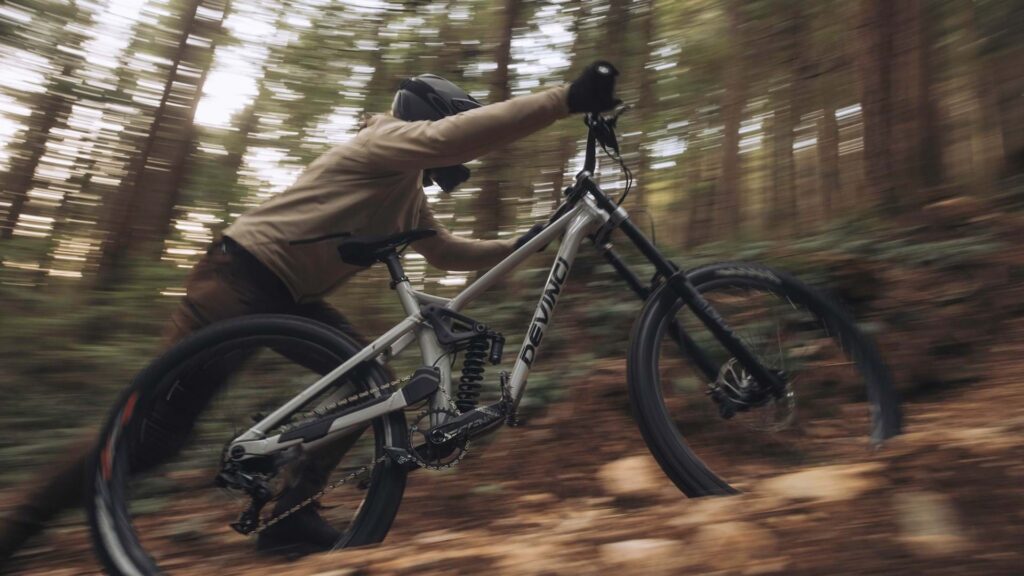Few bicycle manufacturers have operated continuously as long as Fuji Bikes. Founded in 1899, Fuji predates modern racing, mass-production aluminum frames, carbon composites, and even derailleur drivetrains. Over more than a century, the company has shifted materials, markets, and ownership structures while maintaining a consistent position in cycling: practical, performance-oriented bicycles built to be accessible rather than exclusive.
Fuji’s relevance in 2026 does not come from trend leadership or headline technologies. Instead, it comes from continuity. The brand has survived by adjusting to how people actually ride—commuting, racing locally, touring, training, and exploring—rather than focusing exclusively on elite performance categories.
This review examines Fuji Bikes as it exists today: its historical foundation, current product structure, engineering priorities, and how the brand fits into the modern global bicycle market.
Company Background and Structure
Fuji’s origins trace back to Tokyo at the turn of the 20th century, initially as an importer and assembler of bicycles during Japan’s industrial expansion. By the mid-20th century, Fuji had become one of Japan’s most prominent bicycle manufacturers and exporters, particularly to the United States.
Fuji entered the U.S. market in the 1950s, gaining strong recognition during the 1970s and 1980s for lightweight steel road frames that competed directly with European brands. During this period, Fuji bicycles were commonly used by amateur racers, collegiate teams, and club riders, establishing the brand’s reputation for durability and race-capable design.
Today, Fuji operates under Advanced Sports Enterprises, with headquarters in Philadelphia, Pennsylvania. Design, product planning, and distribution are managed in the U.S., while manufacturing follows global production norms typical of large-volume bicycle brands. Fuji maintains wide dealer distribution, particularly in North America, Europe, and parts of Asia.
Brand Positioning and Design Approach
Fuji occupies a broad middle ground within the cycling market. The brand does not target full-custom buyers or professional race teams, nor does it compete primarily in entry-level department store categories. Its focus is on delivering credible performance bicycles at price points that remain attainable for committed recreational riders.
Several themes define Fuji’s design approach:
- Geometry aimed at stability and long-term comfort
- Conservative adoption of new standards after they mature
- Component specifications chosen for durability and serviceability
- Frame designs intended to span multiple product cycles
Fuji tends to introduce technologies after they have become widely supported rather than acting as an early adopter. This reduces compatibility issues and helps maintain replacement part availability over time.
Materials and Frame Technologies
Fuji uses a limited but consistent set of frame materials across its lineup.
A6-SL Aluminum
Fuji’s A6-SL aluminum alloy is used extensively in its mid-range road, gravel, and commuter bikes. Tubes are hydroformed and butted to balance stiffness and weight. The alloy is known for durability rather than extreme lightness and is commonly paired with carbon forks and modern disc brake standards.
C15 Carbon
Fuji’s C15 high-modulus carbon fiber is employed in performance-oriented road and gravel frames. Layups prioritize vibration damping and predictable stiffness rather than maximum torsional rigidity. Frames are designed to accommodate modern tire widths and disc brake loads without excessive weight penalties.
Carbon models typically include internal cable routing, flat-mount disc brakes, and press-fit or threaded bottom bracket standards depending on category.
Road Bike Lineup
Transonic
The Transonic is Fuji’s aero-focused road platform. It features aerodynamic tube shaping, integrated cabling, and race-oriented geometry.
Key characteristics include:
- Full carbon frame and fork
- Internal cable routing
- Stiff bottom bracket region
- Geometry suited to criterium and fast group riding
While not updated annually, the Transonic remains competitive in regional racing environments, particularly for riders seeking aerodynamic benefits without premium-brand pricing.
Gran Fondo
The Gran Fondo series represents Fuji’s endurance road category. These frames emphasize ride comfort and stability over aggressive positioning.
Design traits include:
- Taller stack and shorter reach
- Carbon layups tuned for vibration reduction
- Tire clearance typically up to 32–35 mm
- Disc brake-only configurations
Gran Fondo models are commonly used for long-distance training, sportives, and general road riding where comfort and efficiency are prioritized equally.
Gravel and All-Road Bikes
Jari
The Jari is Fuji’s most influential modern platform and a defining model for the brand in the gravel segment.
Notable features include:
- Aluminum or carbon frame options
- Wide tire clearance (typically 700c x 45 mm or larger)
- Extensive mounting points for bottles, racks, and bags
- Geometry that balances stability with manageable handling
The Jari is frequently selected for mixed-use roles, including gravel riding, commuting, touring, and bikepacking. Its popularity stems from adaptability rather than specialization.
Mountain Bikes
Nevada
The Nevada series represents Fuji’s approach to accessible mountain biking. These bikes are designed for recreational trail use rather than competitive riding.
Characteristics include:
- Aluminum hardtail frames
- Front suspension forks with modest travel
- Hydraulic disc brakes on higher trims
- Conservative geometry aimed at new and intermediate riders
The Nevada line prioritizes durability, predictable handling, and affordability.
Commuter and Hybrid Bikes
Absolute and Crosstown
Fuji’s commuter offerings focus on practicality and comfort.
Common features:
- Upright riding positions
- Flat handlebars
- Wide, puncture-resistant tires
- Disc brakes
- Compatibility with racks and fenders
These models are designed for daily transportation, fitness riding, and recreational use rather than performance metrics.
Ride Characteristics
Across categories, Fuji bikes tend to exhibit consistent ride traits:
- Stable steering with minimal twitchiness
- Moderate stiffness that avoids harsh feedback
- Predictable braking performance
- Low-maintenance component choices
These characteristics align with Fuji’s focus on broad usability rather than niche optimization.
Component Specification Strategy
Fuji typically specifies drivetrains and braking systems from established manufacturers such as Shimano and SRAM. Component choices often favor mid-range groupsets known for reliability and ease of service.
Entry-level models avoid proprietary standards, while higher-end bikes adopt modern interfaces once they are widely supported. This approach reduces long-term ownership complexity.
Market Position and Comparison
Fuji occupies a position between large-volume manufacturers and performance-focused premium brands.
Relative positioning:
- More accessible pricing than Trek or Specialized at comparable specifications
- Broader lineup than niche adventure-focused brands
- Less emphasis on racing pedigree than some European competitors
Fuji’s advantage lies in consistency and value rather than innovation leadership.
Manufacturing, Sustainability, and Longevity
Fuji frames are produced using standard global manufacturing processes aligned with ISO environmental guidelines. Packaging materials increasingly emphasize recyclability, and frame designs are intended to support long service lives rather than rapid turnover.
Durability and parts compatibility are central to Fuji’s sustainability model.
Pricing Structure (Typical Ranges)
- Road bikes: approximately $1,000–$5,000
- Gravel bikes: approximately $1,300–$3,700
- Commuter and hybrid bikes: approximately $500–$1,500
- Mountain bikes: approximately $800–$3,000
Fuji’s pricing consistently undercuts premium brands while maintaining credible frame and component quality.
Intended Rider Profiles
Fuji appeals most strongly to:
- Riders entering road or gravel cycling
- Commuters seeking durable, low-maintenance bikes
- Enthusiasts prioritizing comfort and versatility
- Value-conscious cyclists avoiding boutique pricing
The brand is less focused on elite competition or customization-driven buyers.
Closing Thoughts on Fuji
Fuji Bikes remains relevant in 2026 because it has avoided extremes. The brand’s long history has shaped a product philosophy centered on usability, durability, and value. While Fuji does not lead the market in cutting-edge technology, it consistently delivers bicycles that meet real riding needs across a wide spectrum of disciplines.
For riders who prioritize dependable performance and accessible pricing over trend-driven design, Fuji continues to occupy a stable and well-earned position in the global cycling landscape.
Related Content:
- Norco Bikes Review
- Best Touring Bikes Guide
- Best Budget Friendly Road Bikes
- Best Gravel Bikes Guide
- Best E-Bike Brands Guide
Why Trust This Review?
BestBikeBrands is built by lifelong cyclists with decades of real-world experience — in the shop, on the trail, and behind the wrench. Our goal is simple: to help riders choose the best bikes and gear with confidence, backed by expert insights and hands-on testing. Learn more about us →






